5 Reasons Why Heathenry is Better than Christianity
I had a poll on Patreon which indicated that people wanted me to do some posts on going from Christianity to Heathenry. If you’re new to Heathenry, you may not know all the reasons why Heathenry is that much better than Christianity. In this post, I give you five excellent reasons why Heathenry is better than Christianity.
1. Heathenry Doesn’t Have Sins
Heathens don’t have to worry about sins, because there aren’t any in Heathenry. Yes, we have the 9 Noble Virtues and whatnot, but when it comes to someone judging us, that just doesn’t happen. It doesn’t mean that Heathens don’t have rules they have to obey when it comes to morality, but they are more interested in honor, oaths, and behaving correctly than worrying about whether someone will judge us because we weren’t as nice as we could be with our family or we told white lies.
If there’s anything like sin in Heathenry, it’s oathbreaking, murder, and adultery. Then, the bad guys end up having their corpses gnawed on by Níðhǫggr the dragon/serpent in Nastrond, presumably when the dragon isn’t gnawing on Yggdrasil’s root.
Christianity, on the other hand, has sin. Big time. Lie? That’s a sin that could damn your soul. Talk back to your parents? Sin. Swear using “God” or “Jesus Christ,” and you’ve blasphemed. Going to hell for sure without some sort of absolution. The Catholics are big into the confessional and sacraments. Without those, you’re definitely on the eternal punishment list.
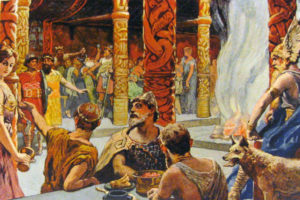 2. Heathenry has Hel, but it’s Not a Place of Torment
2. Heathenry has Hel, but it’s Not a Place of Torment
When people die, they go to a place of rest in Helheim. If they die in battle, they go either to Freyja’s Fólkvangr or Odin’s Valhalla. Freyja gets the first choice of those who die in battle. The rest join Odin at Valhalla for fighting and feasting.
Some of the dead go to the halls of their patron gods or goddesses. Only the really evil people end up in Nastrond to be gnawed upon by Níðhǫggr. (Oathbreakers, adulterers, and murderers.) What do the people in Helheim do? They do the same things they did when they were on Earth, but it is more peaceful and not as hard on them.
Christianity has heaven, hell, and purgatory. Heaven for those whom their god deems worthy to hang out with. Hell for just about everyone else. Purgatory for those who have sinned a little or who had the bad luck of not getting baptized, having original sin. With the exception of purgatory, heaven and hell are eternal.
3. You Have More Than One Soul
It seems incredibly odd in the Christian context, but Heathens believe we have more than one soul. I’ve seen several different writings that pertain to the soul, but from what I can gather,  our souls consist of the hugr (reason), mynd (memory– I’ve also seen minni), hamingja (luck), fylgja (fetch), hamr (the skin or physical body), and ørlög (deeds upon which fate is based). There are probably others that I haven’t quite sussed out yet, but those seem to be the main ones. Yeah, I probably skipped over some. Deal with it.
our souls consist of the hugr (reason), mynd (memory– I’ve also seen minni), hamingja (luck), fylgja (fetch), hamr (the skin or physical body), and ørlög (deeds upon which fate is based). There are probably others that I haven’t quite sussed out yet, but those seem to be the main ones. Yeah, I probably skipped over some. Deal with it.
These souls are tied together and get split apart once we die. Some go to our resting place, either Helheim or one of the halls of the gods; others stay on this Earth to be reincarnated into another body. The hamingja and the fylgia are typically reincarnated when we die. Hamingja or luck–both good and bad–can often follow families or clans. Hugr and mynd generally go to our afterlife. Other parts of ourselves die such as the hamr and the lic (which is the body).
Christianity believes you have one soul and the fate of that soul depends on whether you believe in their god and behave the way their god wants you to behave. Screw up and you pretty much go to hell.
 4. You Don’t Have to Proselytize
4. You Don’t Have to Proselytize
One of the nice things about being a Heathen is you don’t have to convert anyone. In fact, conversion is something we don’t do because we pretty much figure you’ll either figure it out on your own or you won’t. There are other gods and other religions to check out if you’re not into believing in our gods. We believe what we believe, and if you want to believe, well fine. If you don’t, that’s okay too. We’ll all find out in the end who’s right and who’s not. Or if the atheists are right, we won’t know and won’t care anyway.
Our lives focus on the here and now rather than whether we get eternal rewards or torture. We are concerned with our honor and the way we behave, not because someone is going to punish us, but because we are our deeds.
Christians, on the other hand, require that they not only believe in their god, but they also must “spread the good news.” Many flavors of Christianity require that their followers go out and annoy other people in order to convert them.
5. Don’t Relate to One God? You Have Others
In Christianity, you have the Trinity: the Father, Son, and Holy Spirit. Don’t relate to that god? Well, if you’re Catholic or Episcopalian, you have saints, but beyond that, if you don’t relate to their god, you’re pretty much screwed.
Heathenry has several gods, the wights, and the ancestors to talk to. Not a fan of Odin and Thor? Try one of the other gods or goddesses that resonate with you. Not interested in the gods? There are land spirits and ancestors. You can make friends with the wights and ancestors and use their knowledge and inspiration to help you.
There are many other reasons why Heathenry is better than Christianity, but I challenged myself with five reasons. You may have other reasons I haven’t mentioned. Tell me about them in the comments.
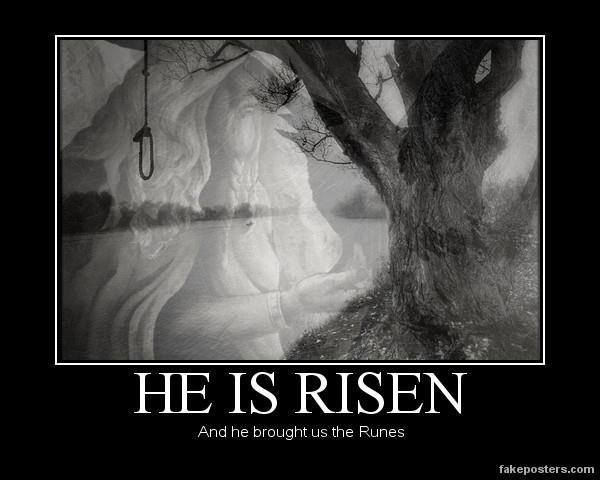


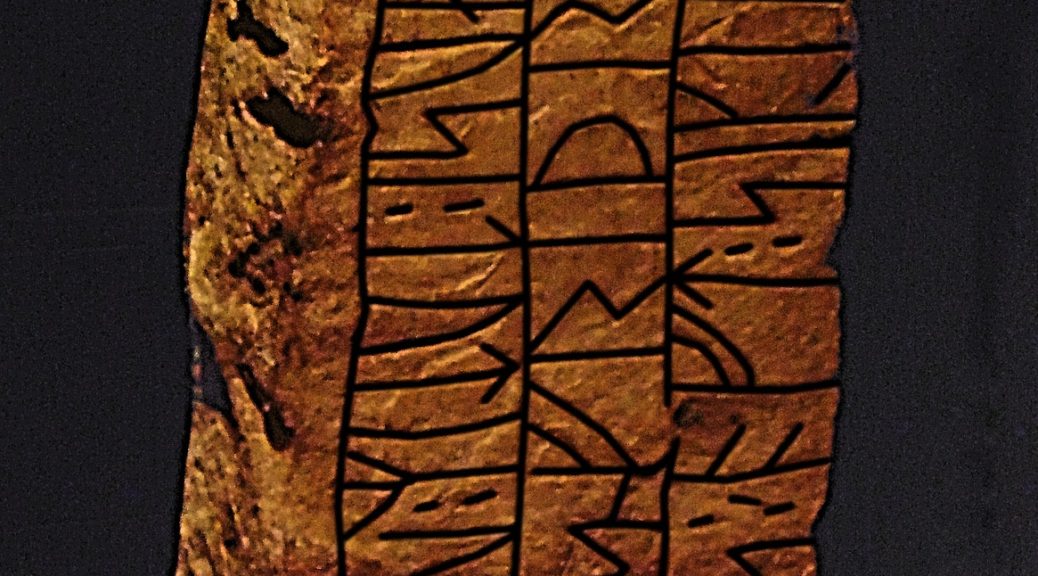
 The Elder Futhark are the oldest runes we know about, having been around between 150 and 800 CE or AD. These runes were first used by Germanic tribes in Northern Germany, Norway, Sweden, and Denmark. Called the Elder Futhark because the first letters of the alphabet are F U TH A R and K. (There’s your answer for Trival Pursuit, Norse Style. You’re welcome.)
The Elder Futhark are the oldest runes we know about, having been around between 150 and 800 CE or AD. These runes were first used by Germanic tribes in Northern Germany, Norway, Sweden, and Denmark. Called the Elder Futhark because the first letters of the alphabet are F U TH A R and K. (There’s your answer for Trival Pursuit, Norse Style. You’re welcome.) Branch runes while the Norwegian-Swedish runes are called the Short-Twig or Rök runes. These runes came into being around the 8th century to about the 12th century, when the Latin alphabet took over.
Branch runes while the Norwegian-Swedish runes are called the Short-Twig or Rök runes. These runes came into being around the 8th century to about the 12th century, when the Latin alphabet took over.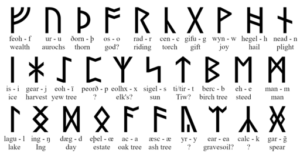 The Anglo-Saxon runes or Anglo-Frisian runes are collectively known as the Futhorc because those are the first letters of that runic alphabet. The earliest form of the Futhorc looked almost exactly like the Elder Futhark with three more runes in the 5th century. By the 7th century, most of the Anglo-Saxon runes had been replaced by the Latin alphabet, but it was still used occasionally up until the 12th century.
The Anglo-Saxon runes or Anglo-Frisian runes are collectively known as the Futhorc because those are the first letters of that runic alphabet. The earliest form of the Futhorc looked almost exactly like the Elder Futhark with three more runes in the 5th century. By the 7th century, most of the Anglo-Saxon runes had been replaced by the Latin alphabet, but it was still used occasionally up until the 12th century.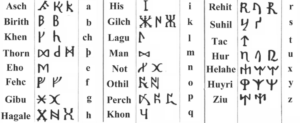 Elder Futhark and Futhorc runes. The manuscript was drawn up in the southern part of the Carolingian Empire, around Bavaria. These runes are supposedly in use in the 8th and 9th centuries.
Elder Futhark and Futhorc runes. The manuscript was drawn up in the southern part of the Carolingian Empire, around Bavaria. These runes are supposedly in use in the 8th and 9th centuries. Although Scandinavia was now Christianized, people still used runes, blending them with the Latin alphabet. They were used between the 12th and 15th centuries.
Although Scandinavia was now Christianized, people still used runes, blending them with the Latin alphabet. They were used between the 12th and 15th centuries.




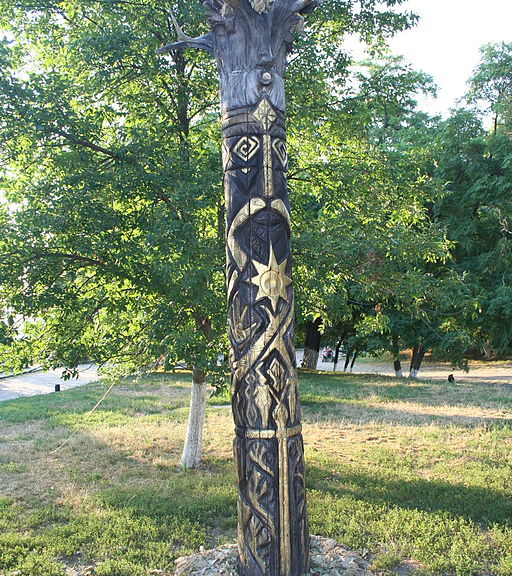
 mentioned in the Eddas, it gives us precedence. Although I would highly dissuade you from having them steeped in the blood of your enemies — pesky laws, you know– you can easily make a rock cairn to the gods outside. I’ll look at those plus other thoughts for putting together an outdoor altar. (Yes, I know the god posts here are of Perun–get over it.)
mentioned in the Eddas, it gives us precedence. Although I would highly dissuade you from having them steeped in the blood of your enemies — pesky laws, you know– you can easily make a rock cairn to the gods outside. I’ll look at those plus other thoughts for putting together an outdoor altar. (Yes, I know the god posts here are of Perun–get over it.)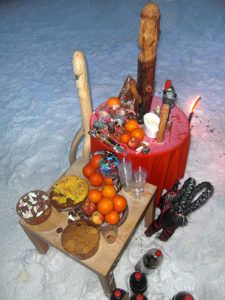 Plan Your Altar
Plan Your Altar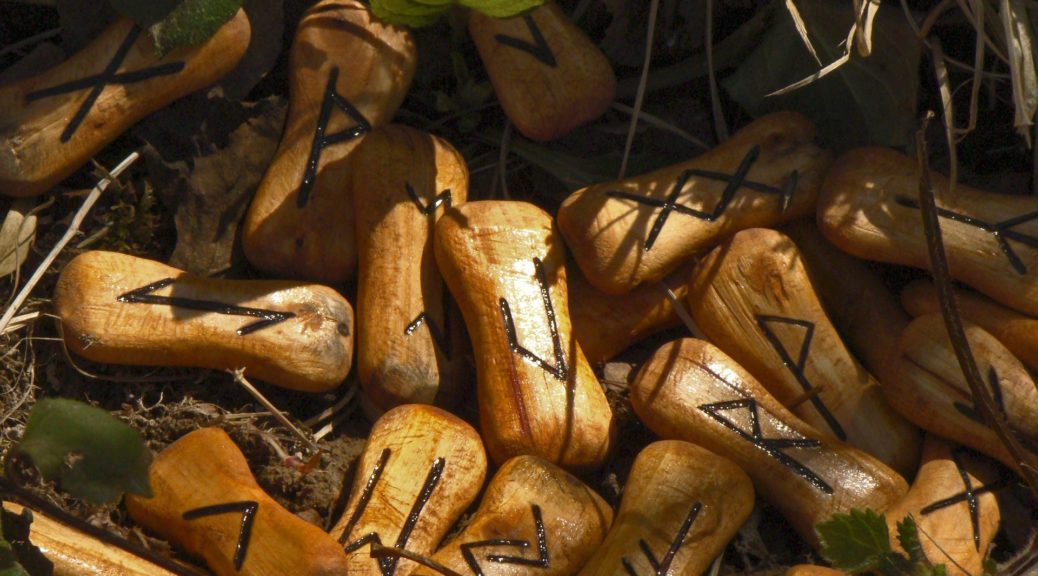


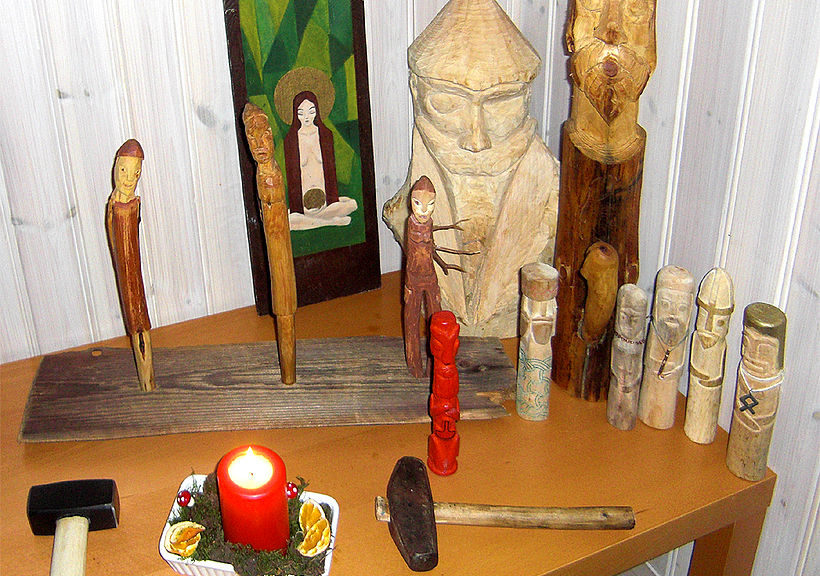
 One of my readers asked me to cover how to create an altar. It surprised me a bit, because while I do have an altar, you don’t have to have an altar. I tend to use my altar for offerings and to hold objects I deem sacred to me and to the gods. Many Heathens, myself included, have done just fine without an altar for a long time. That being said, many Heathens have altars so that they may have a place to leave offerings, to pray, and to keep things sacred to them, such as their runes.
One of my readers asked me to cover how to create an altar. It surprised me a bit, because while I do have an altar, you don’t have to have an altar. I tend to use my altar for offerings and to hold objects I deem sacred to me and to the gods. Many Heathens, myself included, have done just fine without an altar for a long time. That being said, many Heathens have altars so that they may have a place to leave offerings, to pray, and to keep things sacred to them, such as their runes.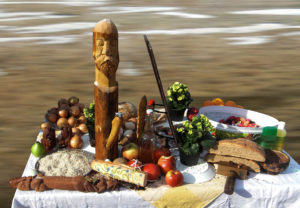 person you want to honor, if you have one. If not, maybe a certain thing they gave you, or maybe something that reminds you of them. Honor the wights in your area, by including a small rock, dried leaf, or even a pine cone or piece of a branch can symbolize the wight or wights you wish to honor.
person you want to honor, if you have one. If not, maybe a certain thing they gave you, or maybe something that reminds you of them. Honor the wights in your area, by including a small rock, dried leaf, or even a pine cone or piece of a branch can symbolize the wight or wights you wish to honor.
 Oh boy! The Rational Heathen gets to weigh in when it comes to sex rites. Look, before we get started, if you’re all for sex rites, orgies, and kink in your life, this post isn’t for you. You can merrily go about your business and have fun. No, this is for those folks who are a bit on the uncomfortable side when it comes to joining in a sex rite that is purportedly Heathen.
Oh boy! The Rational Heathen gets to weigh in when it comes to sex rites. Look, before we get started, if you’re all for sex rites, orgies, and kink in your life, this post isn’t for you. You can merrily go about your business and have fun. No, this is for those folks who are a bit on the uncomfortable side when it comes to joining in a sex rite that is purportedly Heathen. folks are closer to celibate and some are swingers. Some are into BDSM. What you do in your bedroom and is between consenting adults is pretty much your business. A large number of heathens are gay and lesbian, according to interesting polls. That being said, let me reiterate: what you do in your bedroom and is between consenting adults is pretty much your business. I’m not talking about you. No, I’m talking about coerced sex rights. I’m talking about people who claim you can only know a god or goddess if you perform sex with them or their members.
folks are closer to celibate and some are swingers. Some are into BDSM. What you do in your bedroom and is between consenting adults is pretty much your business. A large number of heathens are gay and lesbian, according to interesting polls. That being said, let me reiterate: what you do in your bedroom and is between consenting adults is pretty much your business. I’m not talking about you. No, I’m talking about coerced sex rights. I’m talking about people who claim you can only know a god or goddess if you perform sex with them or their members.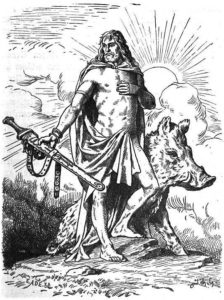 I honestly couldn’t see the problem. The information looked decent enough, but I trust Tyr. It was a couple of years later when Tyr’s words proved spot on. I ran across several conversations how this person used their students for sex rites. Now, I don’t know the entire situation, but when a mentor starts using students for sex, it is a violation of trust. Sure, they might be willing, in the hopes of gaining more knowledge or favors from the fertility and sex gods, but seriously? It is taking advantage of another person. And that, my friend, is where I have a huge issue with it.
I honestly couldn’t see the problem. The information looked decent enough, but I trust Tyr. It was a couple of years later when Tyr’s words proved spot on. I ran across several conversations how this person used their students for sex rites. Now, I don’t know the entire situation, but when a mentor starts using students for sex, it is a violation of trust. Sure, they might be willing, in the hopes of gaining more knowledge or favors from the fertility and sex gods, but seriously? It is taking advantage of another person. And that, my friend, is where I have a huge issue with it.
 Although Tyr is my main god, sometimes other gods step into my life in a big way. It’s not uncommon for me to hear from Loki, Skadi, Thor, and Freyja, but lately Freyr has been making himself known. It’s not that Tyr isn’t important–it’s just that Freyr needs to assert himself in my life. If you’ve ever had one god step into your life
Although Tyr is my main god, sometimes other gods step into my life in a big way. It’s not uncommon for me to hear from Loki, Skadi, Thor, and Freyja, but lately Freyr has been making himself known. It’s not that Tyr isn’t important–it’s just that Freyr needs to assert himself in my life. If you’ve ever had one god step into your life One thing to keep in mind is to pay attention to what the new god or wight has to say, even if they simply show up on your doorstep unannounced. Maybe you don’t have a problem that needs their expertise–yet. Maybe they know something you don’t and are there to help you through something which will be going on in your life. Still, other gods simply show up uninvited because you’ve piqued their interest for some reason.
One thing to keep in mind is to pay attention to what the new god or wight has to say, even if they simply show up on your doorstep unannounced. Maybe you don’t have a problem that needs their expertise–yet. Maybe they know something you don’t and are there to help you through something which will be going on in your life. Still, other gods simply show up uninvited because you’ve piqued their interest for some reason.
 Where the fuck did April go? I swear, it was just the first week when I promised myself to sit down and write. Only there were plenty of distractions, most of them from working as a professional writer and a small-time rancher. Like predators entering the horse pen. Or trying to avoid the bear coming around to investigate things. Or my computer of five years taking a crap.
Where the fuck did April go? I swear, it was just the first week when I promised myself to sit down and write. Only there were plenty of distractions, most of them from working as a professional writer and a small-time rancher. Like predators entering the horse pen. Or trying to avoid the bear coming around to investigate things. Or my computer of five years taking a crap.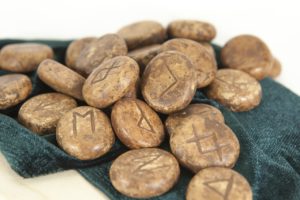 what he promised in his religion. Our gods can be very personal in our lives, but they’re not interested in controlling your life the way the Christian god does. This can be somewhat frightening when we’ve been treated like children most of our lives by one religion and then told to step up and put on the adult pants when we change to Heathenry. Yes. it can even be terrifying when you realize that prayer isn’t going to pay the rent, put food on the table, or better your life. Our gods are a resource of inspiration and yes, knowledge, we can tap into. They can comfort us or urge us to action, but they seldom get involved directly.
what he promised in his religion. Our gods can be very personal in our lives, but they’re not interested in controlling your life the way the Christian god does. This can be somewhat frightening when we’ve been treated like children most of our lives by one religion and then told to step up and put on the adult pants when we change to Heathenry. Yes. it can even be terrifying when you realize that prayer isn’t going to pay the rent, put food on the table, or better your life. Our gods are a resource of inspiration and yes, knowledge, we can tap into. They can comfort us or urge us to action, but they seldom get involved directly.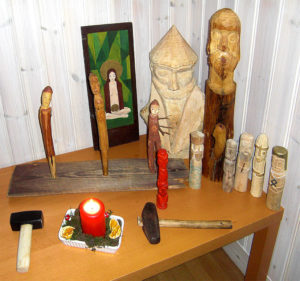 The gift for a gift is a nice thought, but I think it’s more important to have a conversation with our deities. When you have familiarity with the gods you ask help from, you’re more likely to get it than if you just approach a god out of the blue. For example, it’d be foolish for me to solicit Heimdallr for help even though he’s part of our pantheon. Why? Because I don’t have a rapport with Heimdallr. I have more of a rapport with Loki than with him, oddly enough. But even though I do have a rapport with Loki, when I ask for help, it’s usually advice. I know his advice can be good or bad, and it’s up to me to determine what the trickster is actually saying. For advice, I trust Tyr, Thor, Freyr, Freyja, and Skadi. They’re pretty my go-to gods, but if it’s not in an area they have domain over, they will refer me to others to speak with. In that case, I know they’ve already at least introduced me to the god or goddess I need to talk with.
The gift for a gift is a nice thought, but I think it’s more important to have a conversation with our deities. When you have familiarity with the gods you ask help from, you’re more likely to get it than if you just approach a god out of the blue. For example, it’d be foolish for me to solicit Heimdallr for help even though he’s part of our pantheon. Why? Because I don’t have a rapport with Heimdallr. I have more of a rapport with Loki than with him, oddly enough. But even though I do have a rapport with Loki, when I ask for help, it’s usually advice. I know his advice can be good or bad, and it’s up to me to determine what the trickster is actually saying. For advice, I trust Tyr, Thor, Freyr, Freyja, and Skadi. They’re pretty my go-to gods, but if it’s not in an area they have domain over, they will refer me to others to speak with. In that case, I know they’ve already at least introduced me to the god or goddess I need to talk with.